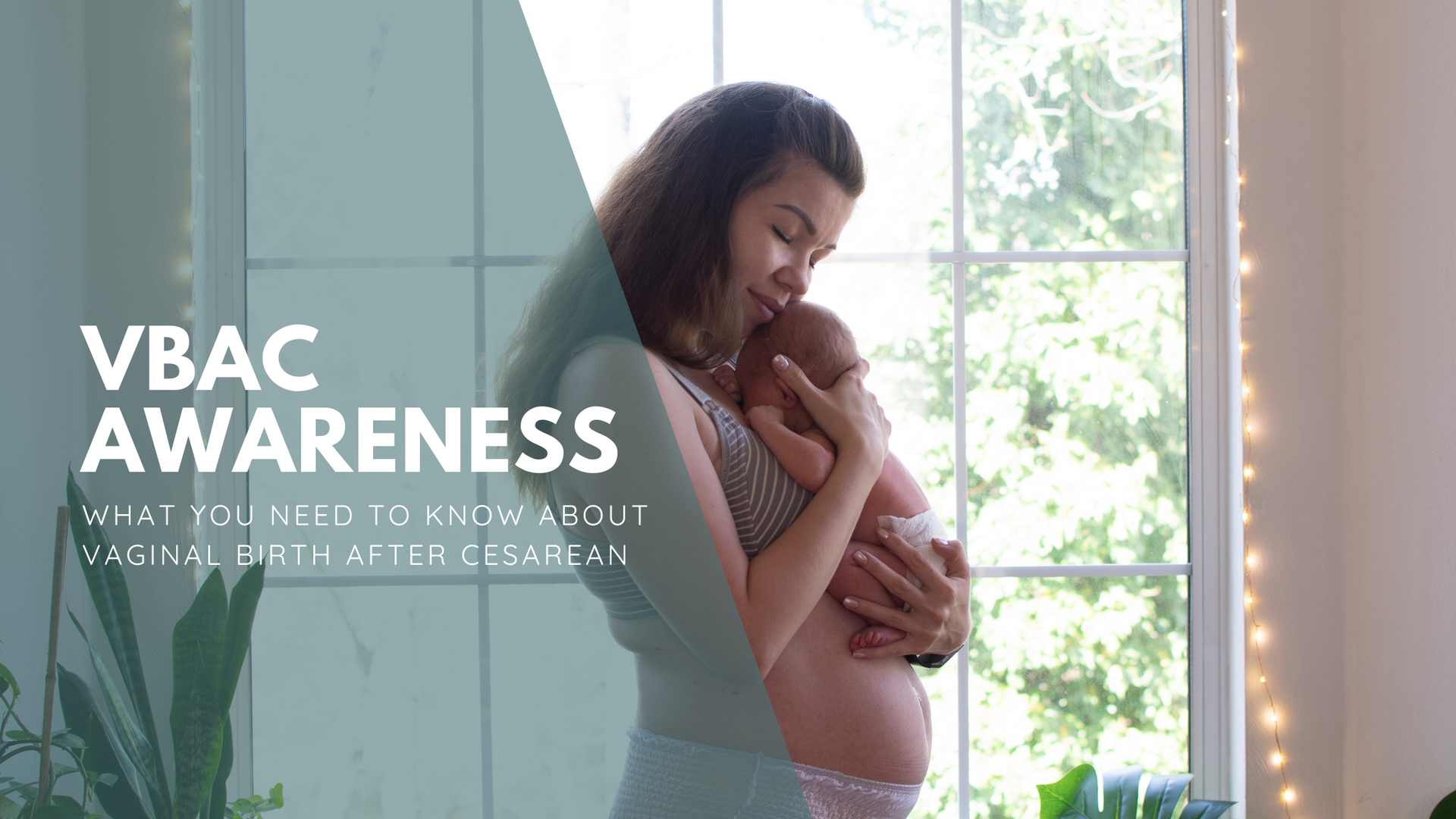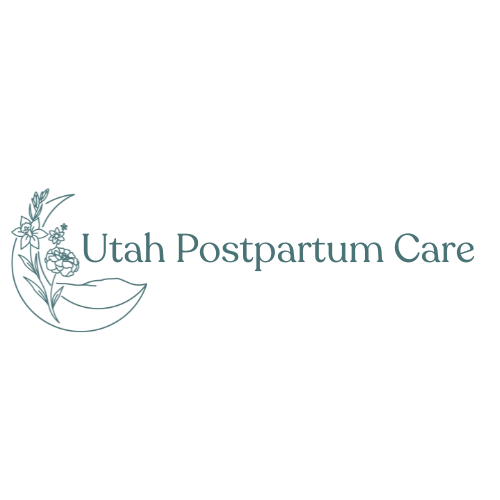VBAC Awareness: What You Need to Know About Vaginal Birth After Cesarean
VBAC Awareness: What You Need to Know About Vaginal Birth After Cesarean

Once a C-section, always a C-section? No. That outdated myth has overstayed its welcome.
If you’ve had a cesarean and you’re daydreaming about a different kind of birth story—the kind that doesn’t involve another surgery—you’re not alone. Vaginal Birth After Cesarean (VBAC) is more than possible. But navigating that path can raise questions, emotions, and “why didn’t anyone
tell me that?” moments.
If you’re curious about VBACs and want to feel informed and supported about your options, you’re in the right place. We’re breaking down what you need to know about VBAC, plus how important your recovery and postpartum experience are, no matter how your baby arrives.
Why VBAC Matters
If you’re considering a VBAC, you might still be carrying some feelings (and maybe physical tension) from your C-section. Whether it was planned or not, a VBAC is often about reclaiming choice and trusting your body in a new way. That’s powerful.
But you need facts, not fear. Let’s get into it.
VBAC Awareness: Here’s What You Need to Know
When it comes to VBAC, knowledge is power, and power is exactly what you need heading into birth.
VBAC is Safe for Most People
VBAC is considered a safe and reasonable option for most people who have had one previous low-transverse C-section. The American College of Obstetricians and Gynecologists (ACOG) supports it. So if your provider says “no” without a real explanation, it’s okay to ask why or to get a second opinion.
It’s About More Than the Scar
Your VBAC success isn’t just about the physical. It’s about mindset, preparation, and having a support team that believes in your ability to do this. And that includes your provider, your partner, and your postpartum plan.
There Are Risks, but You Deserve the Full Picture
VBAC isn’t risk-free.
Uterine rupture is the complication most talked about (under 1% risk for most people with one previous cesarean), and it’s okay to feel anxious about that. But repeat cesareans carry their own increased risks, like infection, longer recovery, and future placental issues.
ACOG
affirms VBAC as a safe choice for many. Still, the decision is yours and should be made with a trusted provider. As postpartum doulas, we’re not here to make that call. We’re here to support you after, no matter what your birth looked like.
Planning for a VBAC Birth and a Smooth Postpartum
We know it’s easy to get laser-focused on birth if you're hoping for a VBAC. It can feel like everything hinges on that one moment in time. But your body, mind, and nervous system will need just as much care afterwards.
This is where we come in. We don't just hold the baby while you shower (though that’s part of it). We’re talking about support that’s calming, consistent, and centered around you.
Here’s how postpartum doula care can make all the difference after a VBAC (or any birth):
Rest Is Recovery
Even without surgery, pushing a baby out (especially after a prior cesarean) is major. Your muscles, tissues, and brain need downtime. A postpartum doula lightens the mental load so you can focus on sleep, nourishment, and healing.
You focus on healing. We’ll help with the rest.
Emotional Recovery Is Part of the Process
A VBAC can be incredibly healing, but it can bring up old trauma, fears, or anxiety you didn’t expect. We’re trained to support your emotional wellness in those early days. We hold space for you to talk, process, and just be real about how you’re feeling.
No need to pretend you’re fine. We’ll sit with you in the messy middle.
Feeding Support Without the Pressure
Sometimes VBAC parents feel extra pressure to “get it all right” this time. Breastfeeding, bottle-feeding, combo-feeding—whatever your journey looks like, we’re here with support, referrals (hello,
IBCLCs), and zero judgment.
No one wins a medal for struggling in silence. Let’s find what works for you.
Support for Your Partner Too
Postpartum care isn’t just for birthing parents. We help partners feel more confident and connected, whether they’re celebrating a smooth VBAC or still processing birth trauma of their own.
Your relationship matters as much as your baby’s latch.
No Matter How Your Baby Arrives, You Deserve Care
Maybe your VBAC went beautifully. Maybe plans changed last minute. Either way, you deserve compassionate, personalized care as you heal, rest, and bond with your baby.
A Few Things You May Need to Know
- Not all hospitals allow VBACs—ask your provider and double-check facility policies.
- VBAC sometimes requires advocacy. It’s unfair, but true. Having a birth doula in your corner could be a game changer.
- Postpartum healing may surprise you. It could feel easier or harder. Either way, your care should be a priority.
Should You Choose a VBAC?
That’s your decision to make. Our role isn’t to steer you. It’s to support you.
Whatever path your birth takes, your healing still matters. You deserve rest, reassurance, and resources tailored to you.
Let’s Make This a VBAC You Feel Good About
Whether you have a VBAC or another C-section, we’re here to help you feel cared for. Our
postpartum doulas offer practical and personal support based on
your experience, not anyone else’s expectations.
Reach out today to learn how we can support your recovery, your rest, and your family’s smooth transition into this new chapter.
FAQ
Is postpartum support different after a VBAC than after a C-section?
Yes and no. You may not have the surgical recovery, but VBAC recovery comes with its own demands. Some people feel sore in new places. Others feel a surprising wave of emotions—relief, grief, empowerment, or all of the above. We tailor support to you, not just your birth type.
How soon after birth can I expect to feel “normal” again?
Every body is different. You might feel tired or sore for a few weeks, but emotional recovery can take longer. Our role is to help you rest, heal, and feel supported during that unpredictable postpartum journey.
Can I still have postpartum complications after a VBAC?
Yes. A VBAC may reduce your risk of surgical complications, but things like heavy bleeding, infection, or pelvic floor strain are still possible. We watch for red flags and help you recognize when something needs attention, without adding to the anxiety.
Since this post was written, we’ve expanded into Utah Postpartum Care, continuing the work we started as Bountiful Doulas to support even more families with postpartum care.











